Liberation Psychology in Ukraine: Mutual Aid and the Quest for Collective Freedom Part II
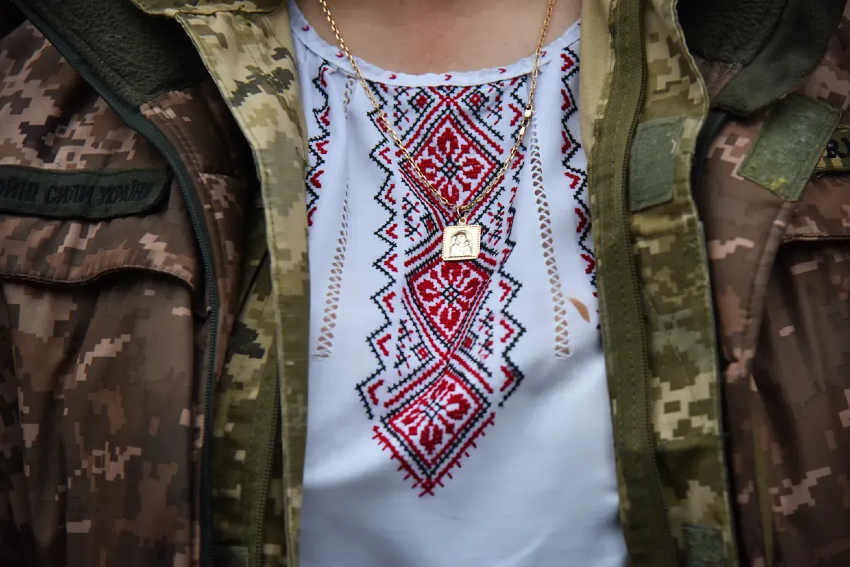
To read part one of this two part interview please go to:
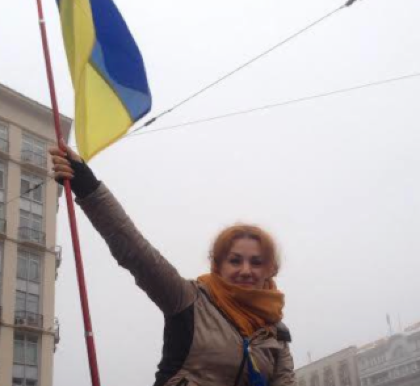
Please donate as mutual aid to Mindlife as they offer their services for free
Second half of the interview with mental health professionals Olena Koval, Netta Horak, and Florin Sebastian Piscoclu working with Mind Lifeline: Therapy For Ukraine program share their experiences working in war-torn Ukraine They describe the emotional toll of anger, grief, and chronic stress on individuals and communities. They discuss how Ukrainians channel their pain into volunteering and mutual aid, but also face burnout and a lack of support. The conversation highlights the importance of collective healing, the need to continue to validate refugees' struggles, and addressing self-blame, while emphasizing the need for caregivers to care for themselves amidst the ongoing crisis.
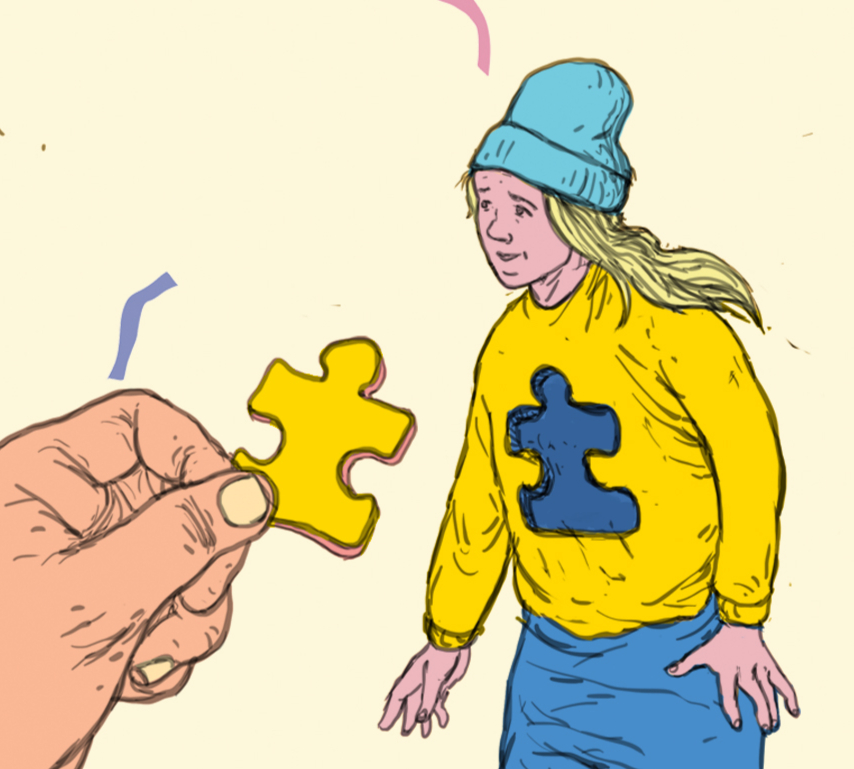
Interview conducted on March 7th, 2025. Interviewer is Jeff Jones with Liberation Psychotherapy.
Jeff Jones (Liberation Psychotherapy)
In what ways do you incorporate cultural, historical or community specific factors into your therapeutic practices?
How do you ensure that your approach is both respectful and effective?
Florin Sebastian Piscociu
I will say that the cultural factor is very important.
At the start of this war, the start of the refugee crisis, it was overwhelming for everybody. We started to address therapy in every form possible, and we didn't have access to therapeutic interventions coming from Ukraine because they were refugees at that time.
At that point, we didn't know who we could rely on. We started with therapy sessions translated by a translator, mostly Romanian, and the result was not disastrous, because it helped, but it wasn't what the population needed. This is why we try to understand more and to see the cultural factors and to see what is that *thing* that makes therapeutic intervention better for Ukraine.
So despite everything, we wanted to go in a scientific direction or a method that is very well rooted science. Rooted in results that are palpable and that we can see too for many populations, not only for the Ukrainian population.
Evidence-based practice was the most important factor and the second factor which was tremendously important was that we needed to find therapists from Ukraine because otherwise it's not going to work. Let's imagine that you need an anthropologic course to understand something. You need one and a half years to fully understand that and even then you are not able to fully comprehend the dimension of the culture.
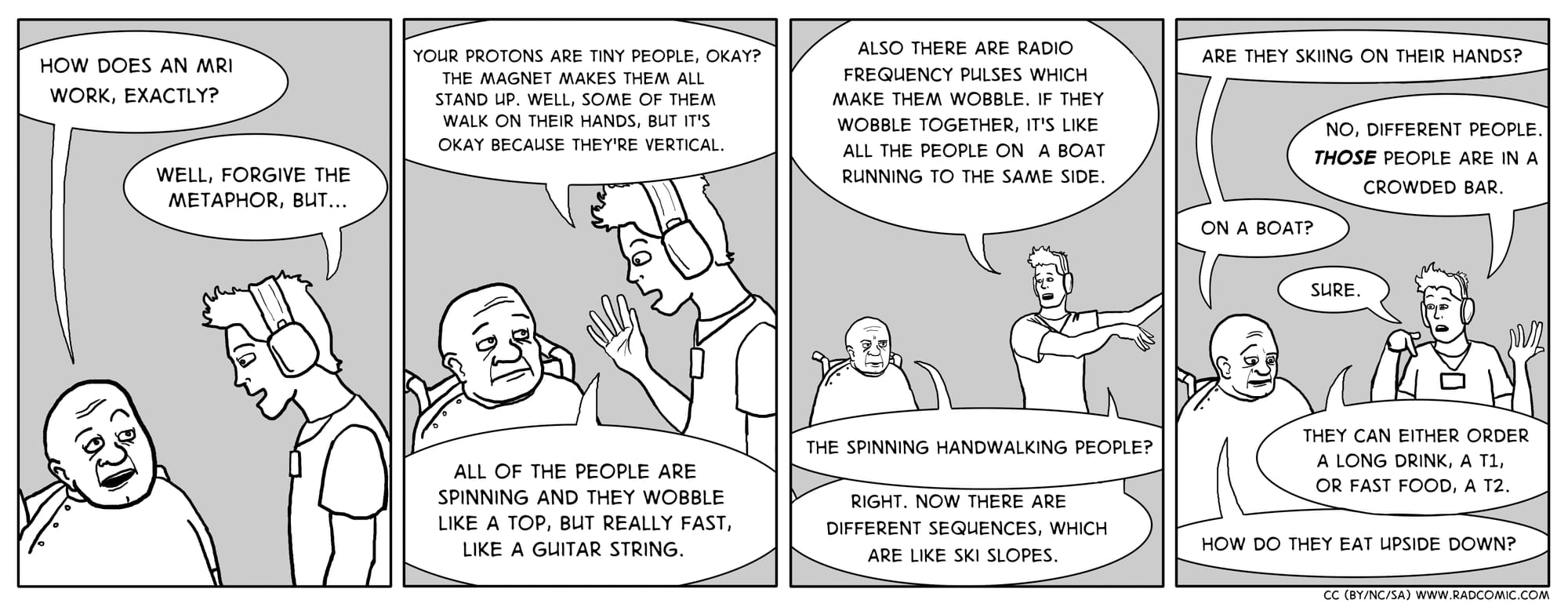
This is why we insisted that nobody else other than Ukrainian therapists will provide therapeutic interventions. I need to be very clear, it's not about just the language and how to express the language. A metaphor that resonates culturally with the client is more important than anything else, and Ukrainian therapists can do that better.
At the end of the day it is not about just doing something, it is about effectiveness because you need that person to be okay to return to the community better than they were before.
We need more efforts, we need more programs that train the Ukrainian therapeutic community better because this will not end. If peace is going to come, it's going to be a peace that will respect the Ukrainian people. If that peace is going to come, the problems will not disappear in the next two or three years. It's an ongoing battle that we need to take into consideration. I'm very positive that at some point, if we understand that science-based therapy with cultural factors is the key to a good intervention, we are going to do fine.
If we don't understand that, we need to rethink everything.
Netta Horak
I can say that in practical work, I start to talk more with my clients about their beliefs, not just their religion, but their beliefs that can support them through whatever is going on around them. These beliefs became very important, how I can see it in the times of the war.
I started to more carefully use metaphors for clients, because I didn't know what could be a trigger for them now. Use metaphors which clients bring in during the session, not suggest them my own metaphors because before the war, I had a lot of metaphors for clients for what is going on. One big consideration is the language of therapy, because in our country, there are people who speak Russian and they have spoken Russian all their life. It’s especially hard for elderly people to learn Ukrainian. But not every psychologist or psychotherapist is okay to work in the Russian language. I know the Russian language and I chose to work in both Ukrainian and Russian because it's about mental health, but I know colleagues who have traumatic events in their life and they just can't work in Russian even with Ukrainian clients. This is very sensitive field now in psychotherapy.
Ukraine is a big country that is culturally diverse and clients can be very different and now with this war it's very sensitive, so I just try to be very careful. I must ask the client if it's comfortable, if it's okay, or what words the client uses for this situation. We have different words in different areas of Ukraine that people use for the same thing.
It's a trauma informed approach. Sometimes, I just tell clients that, no, we will not work with trauma now, we will build resources, we will build resilience to everyday life, and after it we can talk about the trauma experience. Sometimes, clients are a little bit surprised about that, when psychotherapists say we will not work with your trauma now. It's a lot of explanation- how trauma works, why we first need resources, and why after we can work with traumatic experience.
I have clients that I've worked with for seven months, eight months, and we can't get to their trauma experience because of what is going on around them, it's a lot of stress and brings a lot of destabilization. Sometimes I think, “oh, now the client is okay, the client is stable and we can work with their traumatic memory” and then the client comes to session and says that she lost her best friend, and we work with the grief.
So, I think that traumatic experience with some clients, we can get to after the war ends.
Right now the work is stabilization and building resilience.
Olena Koval
I agree with Florian about the Ukrainian therapists and understanding of the context of Ukraine, as Netta said, depending on the region from where the client is it could be completely different in context. I agree with Netta about being too careful now, like being extremely attentive to all the details in the sessions. I feel that I need to provide more room than ever before, more room to bring whatever they are bringing. I'm amazed how this resilience is actually built and the courage just growing through these people. We had a project where we met with Ukrainian women soldiers, military doctors from the front lines, volunteers from the front lines, women after Russian captivity, and women who are doing- I don't know how to explain it English, but what they're basically doing, is taking parts of the (deceased) body from the front lines and identifying the person by DNA and these women have been working within this field since 2014 actually, since Russia occupied part of the Ukrainian territory. When I was with these women for two weeks, the only thing I could do to be honest, was just be there and listen. They have so much to share, they have so much deep wisdom, how they survived, how they're still surviving, and I still have goosebumps when I remember.
I didn't know what to teach them, trauma education would not work for them because they already knew that from the experience, I mean they could give this seminar to me. They experienced that, some of them, for 10 years. I'm amazed how these people can be so powerful and keep doing what they did. At the same time they didn't lose their sensibility, they didn't lose their sense of humor, they didn't become robots.
Jeff Jones (Liberation Psychotherapy)
What strategies or interventions have you found most effective in addressing collective trauma and fostering healing within the communities affected by the war?
Netta Horak
When I read this question in your list Jeff, I thought about a project, a psychological support project we had in the last year, I think, or two years. It was a work of psychology and art. We have vyshyvanka, a Ukrainian sewing on traditional clothes and textiles, it's ornamental. It was work with women who were sexually and physically violated in occupied territories in the Kyivskov region. They got psychotherapy and also sessions of group sewing of towels.
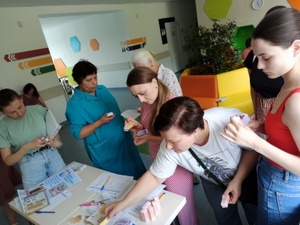
Afterwards, there was an exhibition of these beautiful towels in Kyiv with the stories of the women. I think for communities, this is the ideal work with collective trauma- to do something together, like activity, artwork, to create together, and to tell these stories about trauma, not only with psychologists who can support and facilitate this process, but to talk within the community about it.
We need to find ways to talk about it, to speak about it, to show it in our communities, to work with this collective realm. I hope we will write a lot of books, make a lot of art about it, and we have places and time to talk about it in our communities.
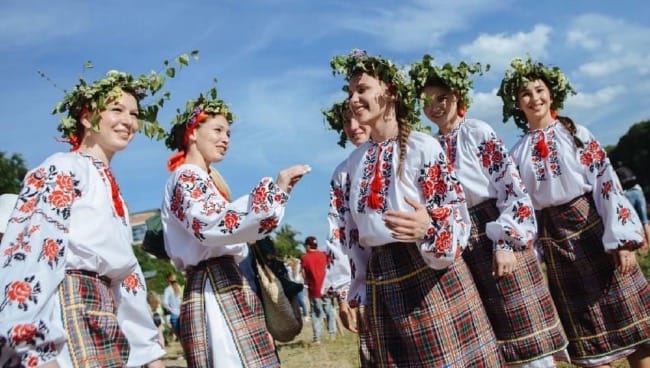
Olena Koval
I would agree with Netta. I don't know a better strategy now to be honest, just this group therapy session, or maybe not “therapy therapy” but sharing what they are experiencing, sharing their feelings. This way they understand that they are not alone. I did these group sessions for two and a half years in Romania, two groups per week. I had maybe 150 women in my groups and we're still meeting online with some of them. Mostly women who came with their kids, so we organized a room for kids. Kids were busy with something and moms had a couple of hours together with other women. This basic psych education helped and art helped as well. These group sessions they're more effective than individual therapy. For many reasons, but because still there are a lot of biases about going to a psychologist. Not everyone will go to a psychologist one on one sessions, and not everyone will need trauma therapy.
I think we still didn't digest transgenerational trauma from the second World War, this feeling of abandonment and this attachment trauma. This war is just on top of already existing transgenerational trauma. The Soviets aimed to separate the families. So, for a hundred years, Ukrainians were experiencing this tension being away from the family, the community, and these group therapy sessions felt really liberating. That “okay, I'm not alone, there is someone who at least is experiencing the same day, at least someone who I can share with, at least someone who will not judge, who will just be there for me.” And not every family in Ukraine, has this safe space.
Jeff Jones (Liberation Psychotherapy)
My next question is working within a war zone or with refugees from the war. I know that it can be psychologically taxing on ourselves as therapists.
I'm curious how you manage your own mental health and prevent burnout while supporting others?
What advice would you give to other therapists working in high stress environments?
Olena Koval
I guess nothing new- the one advice is to take care of yourself. Just taking care of myself works- long walks in nature, spending time with my family, and my daughter. I don't know, just being alone and switching off any social media, any messages, to disappear from others and to be myself.
Meditation works for me, some sports work for me. Basics, I guess.
Netta Horak
I remember the first year of the war a lot of clients asked how I supported myself because for the first two years I lived in Kyiv and just last year I moved to Warsaw.
It takes time to ensure clients that I have enough support to work with them. Which is something that never happened before.
I was very supportive to help colleagues all over the world because we had different programs for Ukrainian psychologists. We have support groups, from colleagues, USA, Israel, France, from different associations, and I am a member of a support group for Ukrainian psychologists and go every week. For me, it's a very big resource from colleagues from other countries.
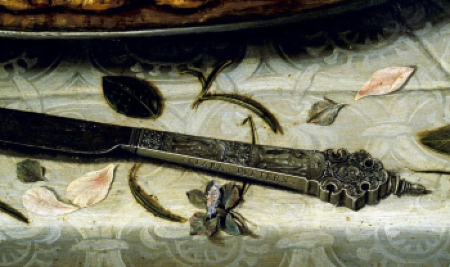
I tell clients I work with to practice mindfulness and meditations, but for me, I'm not a meditation person. I need some active activities to regulate myself and in the beginning of the war, I bought a machete. We live in the countryside and in spring 22’ I just cut dandelions in my backyard with my machete every morning. With a cup of green tea and my machete. When black outs began in Kyiv and we had problems with electricity, I discovered Legos for myself, because I needed just a little light and I could do something with my hands and they had instructions so I didn't need a lot of focus. Now in my family we have more than 60 sets of Lego all over the apartment and this was my discovery of my anti-stress- and a lot of walking outside.
Jeff Jones (Liberation Psychotherapy)
Do you consider yourselves refugees?
Netta Horak
I consider myself a refugee and all of my family. I have part of my family in Canada, part in Austria, part in Germany and in Poland. Unfortunately, part of my family is in occupation and it’s still hard.
Olena Koval
I don’t feel as a refugee. I don’t know how to explain it, but I don’t. Maybe because I was traveling a lot before the war started like to Europe and the Middle East and at some point I planned to move out of Ukraine before the war started. It didn’t happen the way I planned it but I still don’t feel like I’m a refugee. I feel Ukrainian, but not as a refugee.
Jeff Jones (Liberation Psychotherapy)
How should international mental-health workers help to show solidarity for people who work in the war zones, refugees, and therapists?
Olena Koval
You're already doing a lot since the beginning. There was a lot of support, and still there is a lot of support in the seminar way, in the course way, in the free support groups, different kinds of support in the different methods of psychotherapy, I would say.
I really appreciate it. Other than that, I cannot think about anything.
Netta Horak
I agree with you. I don't know what to add. Do what we can to do where we are, and sometimes it's a little bit more, and sometimes it's less, but most importantly it’s not to be blind to this.
Olena Koval
With the current administration of the United States, I saw the mood and, how to say, the “vibe” was for Ukrainians, was an image of a strong democratic, open-minded big brother, I would say, parent image, who did support. And now this image is destroyed, you know, in a couple of moments, it was destroyed. It just may be my feeling, I don't know. But Ukrainians feel they are now by themselves.
They need to restore and to find foundation not outside of themselves, not in someone else who is stronger, bigger, but to restore and to find their own foundation.
It's not the answer to your question about what you can do, but maybe it will give you the other side's perspective.
Netta Horak
Yesterday I read the statement of the American Psychological Association that they will still stand for their principles. And for me it was so important to read this statement. It was like, okay I can still believe in science.
I understand what you're saying about this image, it was very important for Ukrainians, this image of the USA, which is unfortunate now. And it's important that somebody, some organizations, some famous people still stand for what we believe.
Jeff Jones (Liberation Psychotherapy)
This US administration is messed up. Most of us here have known it even way before, this newest one, but the vast majority of people stand with Ukrainians.
I will always give solidarity myself, in any way that I can. I'm really thankful for this.



